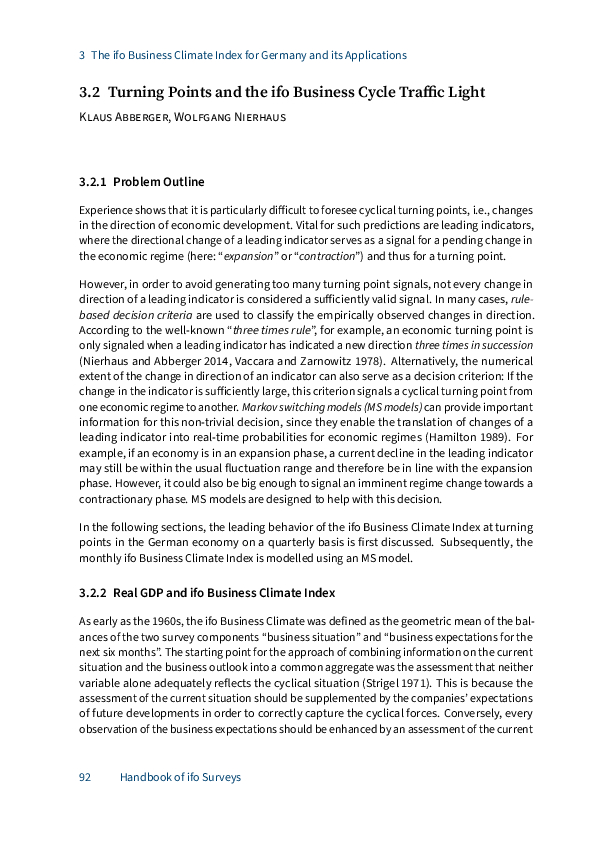Turning Points and the ifo Business Cycle Traffic Light
ifo Institut, München, 2023
ifo Beiträge zur Wirtschaftsforschung / 100, 92-97

Experience shows that it is particularly difficult to foresee cyclical turning points, i.e., changes in the direction of economic development. Vital for such predictions are leading indicators, where the directional change of a leading indicator serves as a signal for a pending change in the economic regime (here: “expansion” or “contraction”) and thus for a turning point.
However, in order to avoid generating too many turning point signals, not every change in direction of a leading indicator is considered a sufficiently valid signal. In many cases, rulebased decision criteria are used to classify the empirically observed changes in direction. According to the well-known “three times rule”, for example, an economic turning point is only signaled when a leading indicator has indicated a new direction three times in succession (Nierhaus and Abberger 2014, Vaccara and Zarnowitz 1978). Alternatively, the numerical extent of the change in direction of an indicator can also serve as a decision criterion: If the change in the indicator is sufficiently large, this criterion signals a cyclical turning point from one economic regime to another. Markov switching models (MS models) can provide important information for this non-trivial decision, since they enable the translation of changes of a leading indicator into real-time probabilities for economic regimes (Hamilton 1989). For example, if an economy is in an expansion phase, a current decline in the leading indicator may still be within the usual fluctuation range and therefore be in line with the expansion phase. However, it could also be big enough to signal an imminent regime change towards a contractionary phase. MS models are designed to help with this decision.
In the following sections, the leading behavior of the ifo Business Climate Index at turning points in the German economy on a quarterly basis is first discussed. Subsequently, the monthly ifo Business Climate Index is modelled using an MS model.
Included in
Handbook of ifo Surveys
ifo Institut, München, 2023
ifo Beiträge zur Wirtschaftsforschung / 100